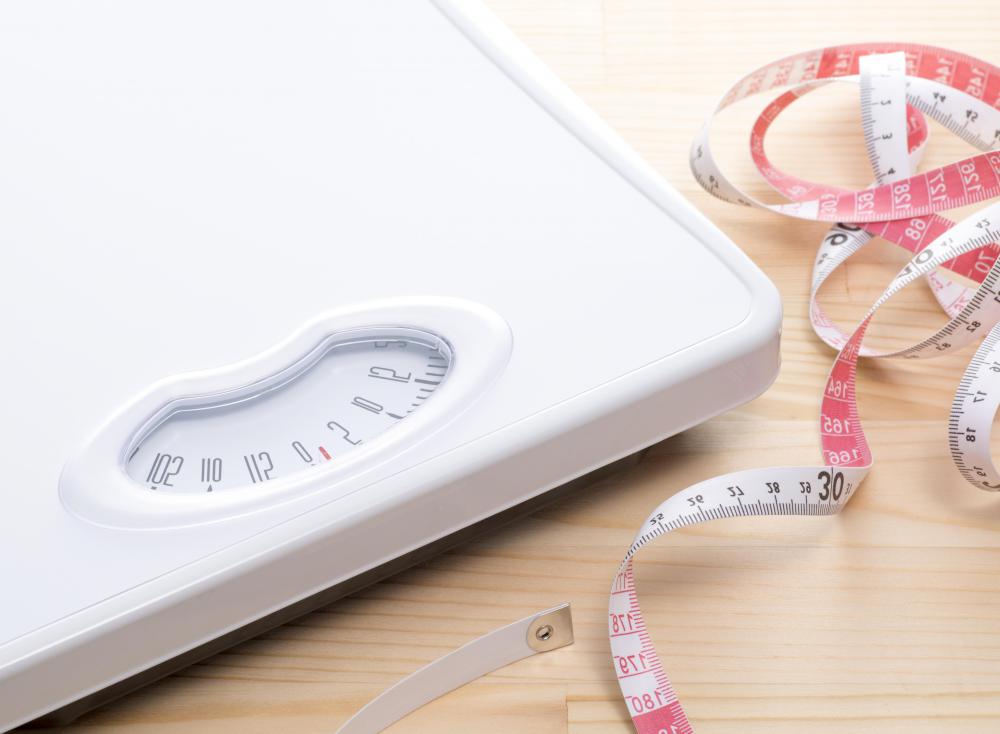At WiseGEEK, we're committed to delivering accurate, trustworthy information. Our expert-authored content is rigorously fact-checked and sourced from credible authorities. Discover how we uphold the highest standards in providing you with reliable knowledge.
What Is the Connection between Body Image and Depression?
Studies have found a correlation between poor body image and mental health, however the cause and effect relationship between poor body image and depression is unclear. Negative body image can be a result of depression, and conversely negative body image may increase feelings of depression. Associations between body image and depression have been found among obese people as well as those who suffer from anorexia and bulimia. Some studies have found a link between dieting and depression. Body image and feelings of self-esteem are particularly vulnerable to mass media that creates unrealistic expectations about appearance.
Research on obesity and depression have identified a clear connection between the body image and depression, but the cause and effect relationship is not clear. Since one of the symptoms of depression can be overeating, a depressed person may become obese. Obese people, especially women, are more likely to have low self-esteem, be dissatisfied with their appearance, and feel guilty. These feelings can lead to depression. Societal prejudice against the obese contributes as well to the anxiety and stress felt by overweight people.

People suffering from eating disorders, such anorexia and bulimia, have higher levels of depression too, although these conditions do not always go hand in hand. Obsession about food and body image leads to a vicious cycle of low self-esteem, guilt and distorted perceptions that can cause depression. In these cases both the eating disorder and the depression should be treated by a mental health professional.

The practice of dieting is rampant in the west, especially in the US where levels of obesity have skyrocketed. Ironically, studies have found a connection with dieting and increased levels of depression. Diets often interfere with social interaction, and induce feelings of guilt. Diets or poor dietary habits can also lead to a lack of essential nutrients which can further impact levels of depression.

Notions about body image partially develop from exposure to television and print where women in particular are often sexualized. Even people who are not depressed or suffering from an eating disorder can be obsessed about body image. Many women as well as men feel pressure to live up to the ideals created by media, and many experience poor body image and depression due to this pressure.

In the West, thinness has become symbolic of economic status, accomplishment and discipline. One study found that 89% of the women wanted to lose weight. Yet for most women, the idealized notion of thinness is an unattainable goal leading to frustration, guilt, lowered self-esteem and many times depression.
Research has found that girls who see their bodies as objects and who try to attain unrealistic ideals of thinness are more likely to suffer from depression and even suicidal feelings. Among adolescent women, surveys have shown that 59% feel they are fat and want to lose weight. Girls who practiced extreme dieting also received poorer nourishment and ate fewer fruits and vegetables than those not dieting, thus compromising their growth and overall health.
AS FEATURED ON:
AS FEATURED ON:

















Discussion Comments
@Iluviaporos - I don't know if that is actually the answer though. I would like people to start asking, does it really matter? I know I'm not particularly attractive, but it doesn't seem to make any difference when I get depressed. I focus more on my personal qualities.
I just feel like modern society is so obsessed with image, we don't realize the easiest way to feel better about it is to ignore it completely.
@croydon - I have had quite a few friends over the years who had various degrees of eating disorders. Not because I "know how to pick 'em" or anything like that. I'm just easy to talk to and, honestly, I think most women struggle with it at some point, and not a few men either.
It always astonishes me how bad their body image would get at times, when they were being truly open about it. It makes me sad that really finding yourself attractive seems to almost be a radical thing to do these days.
And it's weird, because I was usually larger than these girls who were constantly trying to lose weight and they would sincerely tell me they thought I was beautiful, even though they couldn't say the same thing about themselves.
I have noticed that I honestly will believe that I have gained weight when I'm feeling down and that I've lost weight when I'm feeling good, even though I haven't changed either way on the scales. It annoys me, to be honest, because I like to think that I just don't care about that sort of thing, but it never fails that I'll start fretting about being fat whenever I get depressed over something else.
It's one of those things where I can see how some people would take it to an extreme and develop an eating disorder because there doesn't seem to be any logic to it. I'm just lucky it doesn't really effect me much.
Post your comments